Search Results
Search
Filter results
Advanced Filters
Your search returned 279 Solutions
-
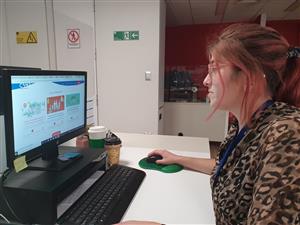
Online accessibility training for civil servants
SENADIS, the National Disability Service of Chile, launched an online accessibility training programme for civil servants, called Preparados para Incluir, that offered three courses centred around accessibility, its legal framework, general principles, and access to ICT.
SENADIS - National Service for the Disabled Chile, Preparados para Incluir (Ready to Include), Chile -
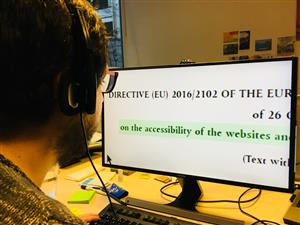
Minimum standards of websites and mobile applications by the public sector in all 28 EU-countries
The Directive (EU) 2016/2102 requires public sector bodies of all 28 EU member states to make public-sector websites and mobile applications accessible by 2021. Accessibility must be covered for all user groups and and must meet four principles: Perceivability, operability, understandability, robustness.
European Parliament (Parent Organization), European Union – Directive on the accessibility of the websites and mobile applications of public sector bodies, Belgium -
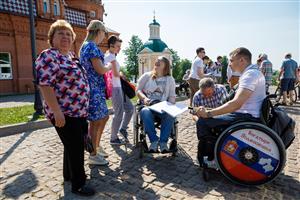
A social franchise model for accessibility experts
In 2015, the All-Russian Society of Disabled People (ARDS) began to conduct accessibility seminars throughout the country. In order to support many of the people it trains, the ARDS set up expert centres across Russia, offering advice and financial support. By 2019, some 480 experts were working in 64 of 85 regions of Russia.
All Russian Society of Disabled People, Certification in Accessibility Expertise, Russia -
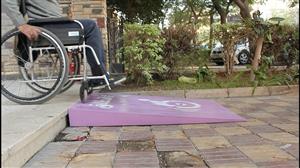
Crowd-sourced reviews on 1,000 sites across Egypt
The app allows persons disabilities to search for venues such as shops, restaurants, and public offices that provide the accessibility features that they require. Users can request Helm to review a venue and upload it to the app, if approved, or give their own ratings. More than 1,000 people use Entaleq regularly.
Helm, Enteleq app, Egypt -
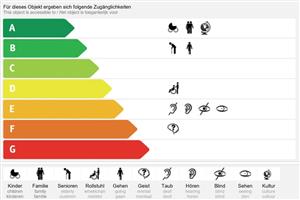
Rating the accessibility of buildings using a well-known seal system
BPASS carries out accessibility assessments of objects and public spaces based on a 300-question checklist for 11 different beneficiary groups. The actual state of the building or public space is visualised with a colour scheme and a rating. In addition to German, BPASS is also available other languages.
EUKOBA - European Competence Centre for Accessibility, BPASS, Germany -
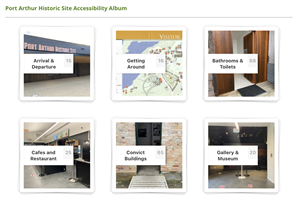
Website collecting comprehensive facts about accessible travelling in a whole region
Travel for All, a social business from Australia, launched the Travel For All Guide - a comprehensive travel guide for travellers with disabilities. The website provides vetted information that is co-created by its users, and offers a toolkit on accessibility issues for tourism suppliers.
Travel For All, Travel For All, Australia -
OBLIGATORY ACCESSIBILITY STANDARDS
Uganda is among the first sub-Saharan countries to have developed their own accessibility standards. Uganda’s standards are mandatory for school construction projects and other public facilities. Also a National Accessibility Audit Committee and several District Accessibility Audit Committees were set up.
Ugandan Ministry of Gender Labour and Social Development, Uganda makes accessibility standards mandatory, Uganda -
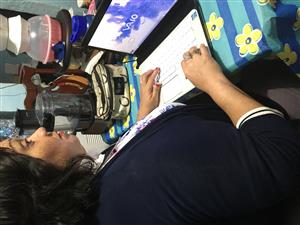
Private company joins a university in training students in web accessibility
"Los Laboratorios de Accesibilidad Web" (Web Accessibility Laboratories) is a project for improving web accessibility expertise in Latin America. The approach is based on a training course and the development of web accessibility assessment tools. Since the start in 2015, 150 programmers and designers have passed the course.
Hearcolors, The Web Accessibility Laboratories, Mexico -

Government-produced model toolkit for accessible websites and online content
The Online Accessibility Toolkit, published by the regional gonverment of Southern Australia, is a free and publicly available set of tools for making websites and online solutions more accessible and inclusive. The toolkit contains eight topics and was designed in consultation with people with disabilities.
Government of South Australia, South Australian Government Online Accessibility Policy and Toolkit, Australia -

Transatlantic e-Accessibility standards cooperation
In 2004 the United States and the European Union initiated a process to harmonize the standardisation of ICT accessibility requirements. This cooperation resulted in largely compatible standards, that can create enormous leverage for accessible technologies and possibly lay the groundwork for an international standard.
United States Access Board, Mandate 376; European Standard on e-Accessibility EN 301 549 of 2014 of the European Commission, European Union Proposed rule for 508 Standards and the 255 Guidelines of 2015 of the U.S. Access Board, USA, United States of America